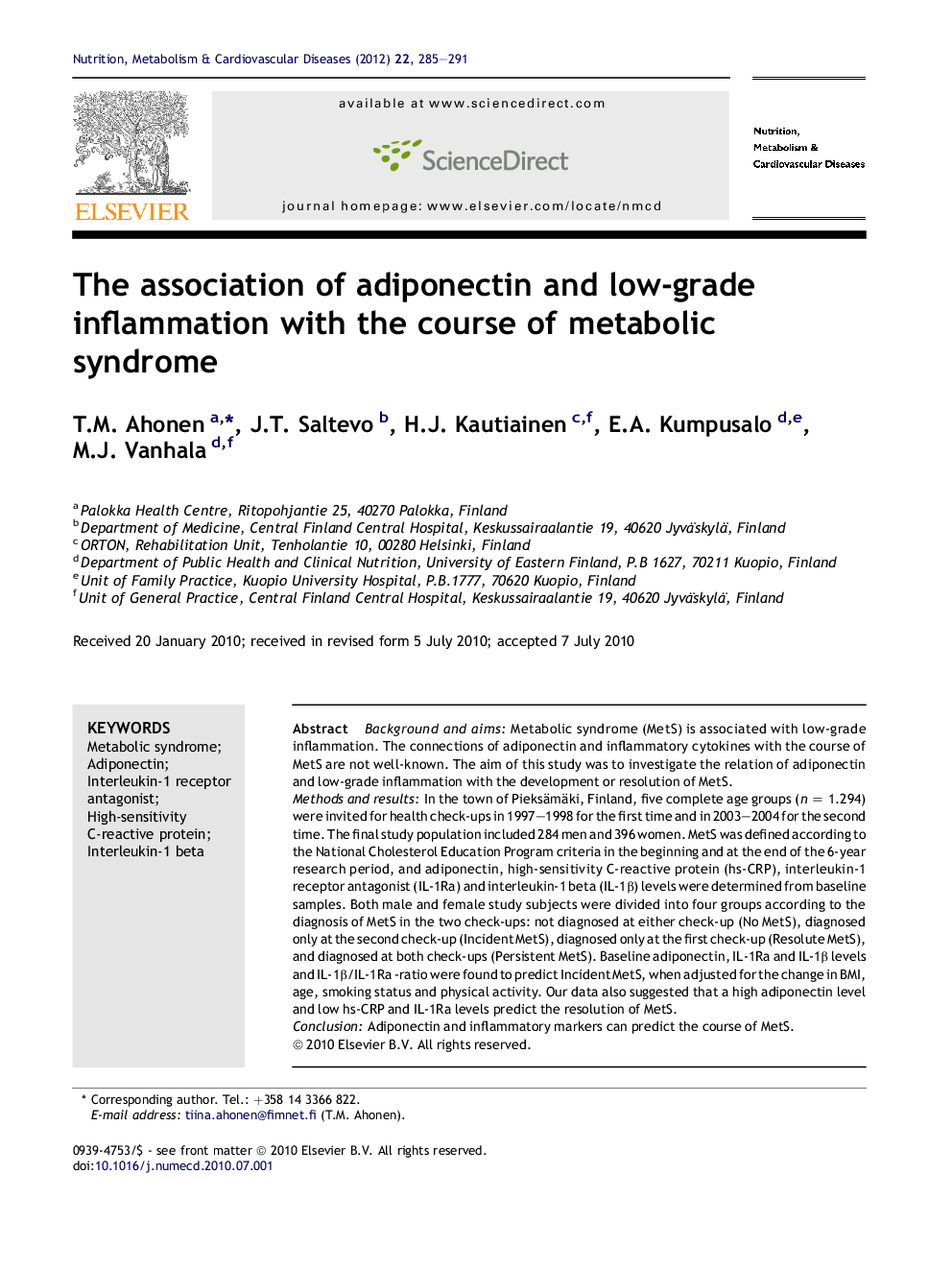| کد مقاله | کد نشریه | سال انتشار | مقاله انگلیسی | نسخه تمام متن |
|---|---|---|---|---|
| 3002660 | 1180739 | 2012 | 7 صفحه PDF | دانلود رایگان |

Background and aimsMetabolic syndrome (MetS) is associated with low-grade inflammation. The connections of adiponectin and inflammatory cytokines with the course of MetS are not well-known. The aim of this study was to investigate the relation of adiponectin and low-grade inflammation with the development or resolution of MetS.Methods and resultsIn the town of Pieksämäki, Finland, five complete age groups (n = 1.294) were invited for health check-ups in 1997–1998 for the first time and in 2003–2004 for the second time. The final study population included 284 men and 396 women. MetS was defined according to the National Cholesterol Education Program criteria in the beginning and at the end of the 6-year research period, and adiponectin, high-sensitivity C-reactive protein (hs-CRP), interleukin-1 receptor antagonist (IL-1Ra) and interleukin-1 beta (IL-1β) levels were determined from baseline samples. Both male and female study subjects were divided into four groups according to the diagnosis of MetS in the two check-ups: not diagnosed at either check-up (No MetS), diagnosed only at the second check-up (Incident MetS), diagnosed only at the first check-up (Resolute MetS), and diagnosed at both check-ups (Persistent MetS). Baseline adiponectin, IL-1Ra and IL-1β levels and IL-1β/IL-1Ra -ratio were found to predict Incident MetS, when adjusted for the change in BMI, age, smoking status and physical activity. Our data also suggested that a high adiponectin level and low hs-CRP and IL-1Ra levels predict the resolution of MetS.ConclusionAdiponectin and inflammatory markers can predict the course of MetS.
Journal: Nutrition, Metabolism and Cardiovascular Diseases - Volume 22, Issue 3, March 2012, Pages 285–291